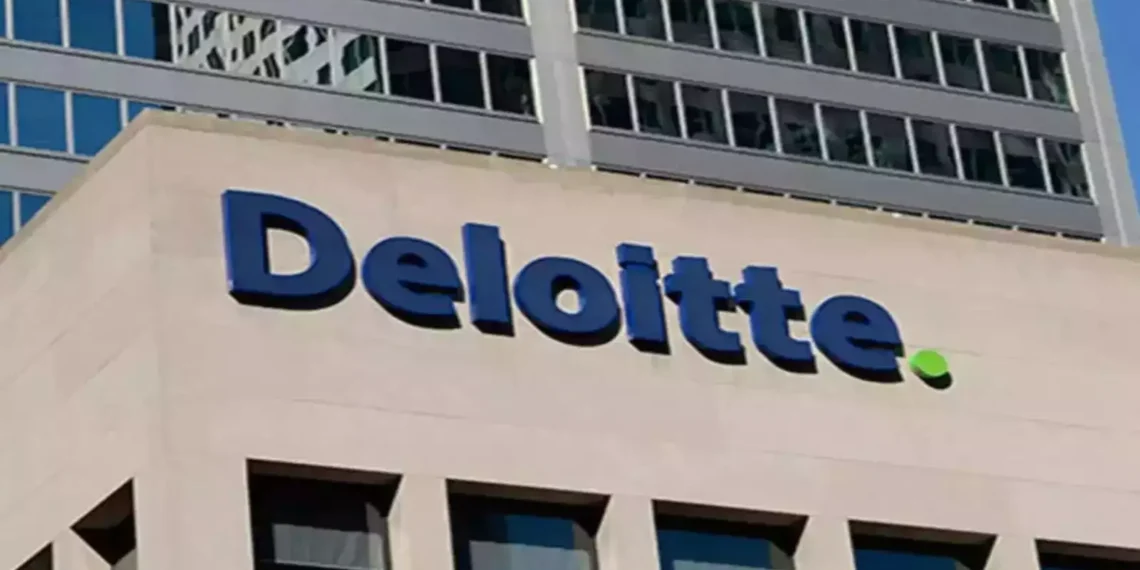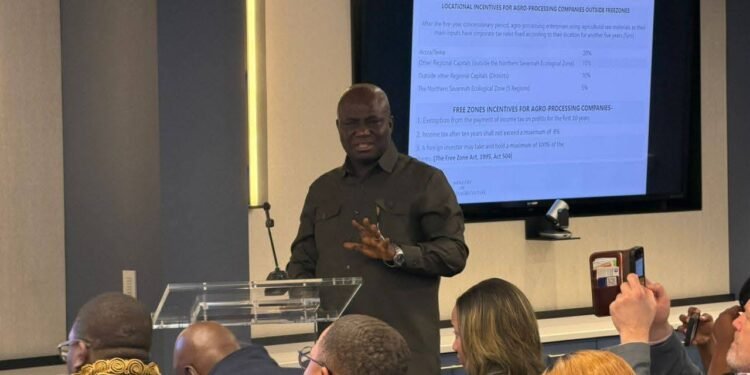Deloitte West Africa has projected that Ghana is likely to witness a sustained decline in inflation, provided the country maintains fiscal discipline, tightens monetary policy, and ensures the stability of its local currency—the cedi.
The professional services firm made this known in its April 2025 West Africa Inflation Update, noting that while recent data shows a positive trend, persistent domestic inefficiencies remain a key risk to the downward trajectory of consumer prices.
According to the Ghana Statistical Service, Ghana’s inflation rate fell for the fourth consecutive month in April 2025, reaching 21.2%. This marks a significant drop from the peak levels recorded in 2023 and early 2024.
Deloitte interprets this trend as a signal of improving macroeconomic stability, largely underpinned by improved fiscal management and a relatively stable exchange rate. “Policy tightening, fiscal discipline, lower energy costs, and a stable cedi are expected to support the sustained decline in inflation,” Deloitte stated in its report.
Monetary Policy Flexibility Likely
The easing of inflationary pressures, Deloitte notes, gives the Bank of Ghana more room to manoeuvre in terms of adjusting its monetary policy. This could include the potential to reduce interest rates or adopt other accommodative measures to spur growth if inflation continues its downward path.
However, the firm cautioned that complacency could reverse the gains made. “Domestic inefficiencies, if not addressed, will remain an upside risk to inflation and could delay monetary policy easing,” the report added.
Despite the overall decline in inflation, food prices remain a significant contributor to the cost-of-living crisis in the country. Food inflation stood at 25% in April 2025, indicating that many Ghanaian households continue to feel the pinch at the marketplace. Notably, inflation in oils and fats recorded the highest figures within the food and beverage sub-class.
This disparity between headline inflation and food inflation suggests that while broader macroeconomic indicators may be improving, the average Ghanaian consumer is still grappling with elevated prices on essential goods.
Monthly Inflation Shows Resurgence
While year-on-year inflation figures reflect a downward trend, the monthly inflation rate for April 2025 increased to 0.8%, up from 0.2% in March. This jump suggests renewed inflationary pressures, possibly linked to seasonality, energy pricing, or imported food price volatility. Deloitte highlighted this uptick as a reminder that the battle against inflation is not yet over and requires vigilance.
Adding to the complexity, the International Monetary Fund (IMF) has projected a year-end inflation rate of 17.5% for Ghana, which contrasts with the government’s more optimistic target of 12%. This gap underscores the uncertainty surrounding inflationary forecasts and the differing assumptions used by both institutions. Deloitte’s analysis seems to align more closely with the IMF’s cautionary outlook, reinforcing the need for continued policy discipline.
Regional Snapshot: Nigeria’s Inflation Also Declines
Elsewhere in West Africa, Nigeria also saw a decline in inflation, with the rate falling to 23.71% in April 2025 from 24.23% in March. Deloitte attributed this drop to base effects and lower fuel prices. Core inflation in Nigeria also declined, settling at 23.39%. Despite these improvements, the report warned that renewed naira volatility and impending tariff hikes could slow the pace of disinflation.
In light of these risks, Nigeria’s Monetary Policy Committee (MPC) chose to maintain its benchmark interest rate at 27.5% during its May 2025 meeting, indicating a cautious approach despite the improving inflation outlook.
According to Deloitte, while recent gains in inflation reduction are commendable, sustaining this trend will require consistent fiscal discipline, a firm monetary policy stance, and stable macroeconomic conditions. The persistent challenge of food inflation and potential risks from domestic inefficiencies highlight the need for targeted structural reforms and prudent economic management.
For now, Ghana appears to be on the right track. But as Deloitte’s report suggests, the journey to price stability is far from over and demands continuous commitment from policymakers, businesses, and consumers alike.
READ ALSO: Foreign Minister Defends Invention of Ghana’s New 5-Day Visa Policy























